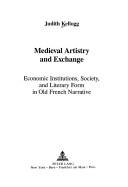| Listing 1 - 10 of 638 | << page >> |
Sort by
|
Book
Year: 1865 Publisher: Hartford, Conn.
Abstract | Keywords | Export | Availability | Bookmark
 Loading...
Loading...Choose an application
- Reference Manager
- EndNote
- RefWorks (Direct export to RefWorks)
Book
Year: 1829 Publisher: Williamstown [Mass.]
Abstract | Keywords | Export | Availability | Bookmark
 Loading...
Loading...Choose an application
- Reference Manager
- EndNote
- RefWorks (Direct export to RefWorks)
Book
Year: 1919
Abstract | Keywords | Export | Availability | Bookmark
 Loading...
Loading...Choose an application
- Reference Manager
- EndNote
- RefWorks (Direct export to RefWorks)
Book
Year: 1931
Abstract | Keywords | Export | Availability | Bookmark
 Loading...
Loading...Choose an application
- Reference Manager
- EndNote
- RefWorks (Direct export to RefWorks)

ISBN: 0820409715 9780820409719 Year: 1989 Volume: 123 Publisher: New York, N.Y. Lang
Abstract | Keywords | Export | Availability | Bookmark
 Loading...
Loading...Choose an application
- Reference Manager
- EndNote
- RefWorks (Direct export to RefWorks)
Old French literature --- Thematology --- French literature --- Economics in literature. --- Narrative poetry, French --- Chansons de geste --- Romances --- Literature and society --- History and criticism. --- French literature - To 1500 - History and criticism. --- Narrative poetry, French - History and criticism. --- Chansons de geste - History and criticism. --- Romances - History and criticism. --- Literature and society - France.
Book
ISBN: 9462097232 9462097259 9462097240 Year: 2014 Publisher: Rotterdam, Netherlands : Sense Publishers,
Abstract | Keywords | Export | Availability | Bookmark
 Loading...
Loading...Choose an application
- Reference Manager
- EndNote
- RefWorks (Direct export to RefWorks)
Every storyteller soon discovers the difference between putting a story inside children and trying to extract it with comprehension questions and putting children inside a story and having them act it out. Teachers may experience this as a difference in “difficulty”, or in the level of motivation and enthusiasm, or even in the engagement of creativity and imagination, and leave it at that. This book explores the divide more critically and analytically, finding symmetrical and even complementary problems and affordances with both approaches. First, we examine what teachers actually say and do in each approach, using the systemic-functional grammar of M.A.K. Halliday. Secondly, we explore the differences developmentally, using the cultural-historical psychology of L.S. Vygotsky. Thirdly, we explain the differences we find in texts by considering the history of genres from the fable through the plays of Shakespeare. “Inside” and “Outside” the story turn outto be two very different modes of experiencing—the one reflective and narrativizing and the other participatory and dialogic. These two modes of experience prove to be equally valuable, and even mutually necessary, but only in the long run—different approaches are necessary at different moments in the lesson, different points in development, and even different times in human history. In the final analysis, though, this distinction is meaningless to children and to their teachers unless it is of practical use. Each chapter employs only the most advanced technology ever developed for making sense of human experience, namely thinking and talking--though not necessarily in that order. So every story has a specific narrative to tell, a concrete set of dialogues to try, and above all a practicable time and a practical space for children, their teachers, and even their teachers’ teachers, to talk and to think.
Storytelling in education. --- Education --- Social Sciences --- Education, Special Topics --- Education - General --- Literacy. --- Teachers --- Training of. --- Teacher education --- Teacher training --- Teachers, Training of --- Illiteracy --- Education. --- Education, general. --- General education --- Children --- Education, Primitive --- Education of children --- Human resource development --- Instruction --- Pedagogy --- Schooling --- Students --- Youth --- Civilization --- Learning and scholarship --- Mental discipline --- Schools --- Teaching --- Training

ISBN: 9780521070058 0521845122 9780521845120 9780511497063 0511497067 0511081014 9780511081019 0511079494 9780511079498 051112189X 9780511121890 9786610163281 6610163286 0511080255 9780511080258 0521070058 1107140943 9781107140943 1280163283 9781280163289 0511196601 9780511196607 0511298153 9780511298158 Year: 2005 Publisher: Cambridge Cambridge university press
Abstract | Keywords | Export | Availability | Bookmark
 Loading...
Loading...Choose an application
- Reference Manager
- EndNote
- RefWorks (Direct export to RefWorks)
This book examines the overlooked topic of the influence of anti-Bolshevik, anti-Semitic Russian exiles on Nazism. White émigrés contributed politically, financially, militarily, and ideologically to National Socialism. This work refutes the notion that Nazism developed as a peculiarly German phenomenon: it arose primarily from the cooperation between völkisch (nationalist/racist) Germans and vengeful White émigrés. From 1920-1923, Adolf Hitler collaborated with a conspiratorial far right German-White émigré organization, Aufbau (Reconstruction). Aufbau allied with Nazis to overthrow the German government and Bolshevik rule through terrorism and military-paramilitary schemes. This organization's warnings of the monstrous 'Jewish Bolshevik' peril helped to inspire Hitler to launch an invasion of the Soviet Union and to initiate the mass murder of European Jews. This book uses extensive archival materials from Germany and Russia, including recently declassified documents, and will prove invaluable reading for anyone interested in the international roots of National Socialism.
Russians --- Anti-communist movements --- Russes --- Mouvements anticommunistes --- Aufbau (Organization) --- Nationalsozialistische Deutsche Arbeiter-Partei. --- Antisemitism --- Ethnology --- Slavs, Eastern --- Anti-Jewish attitudes --- Anti-Semitism --- Ethnic relations --- Prejudices --- Philosemitism --- Anti-communist resistance --- Underground, Anti-communist --- Communism --- History --- Politics and government --- Nazi Party --- NSDAP --- National Socialist German Labor Party --- Partito nazionalsocialista dei lavoratori tedeschi --- Kokumin Shakaishugi Doitsu Rōdōshatō --- Partido Nacionalsocialista --- National Socialist German Workers Party --- NSVSP --- Nacionālsociālistiskā vācu strādnieku partija --- Nachitō --- Partia Narodowosocjalistyczna --- Narodowosocjalistyczna Niemiecka Partia Robotnicza --- NSGWP --- Partido Obrero Alemán Nacionalsocialista --- Narodowo-Socjalistyczna Niemiecka Robotnicza Partja --- N.S.D.A.P. --- Partido Nazista --- מפלגה הנאצית --- נאצים --- Reconstruction (Organization) --- Antisémitisme --- Political activity. --- History. --- Activité politique --- Histoire --- Nationalsozialistische Deutsche Arbeiter-Partei --- Germany --- Political activity --- Soviet Union --- 20th century --- Politics and government. --- Arts and Humanities
Book
ISBN: 906290873X Year: 1981 Publisher: Antwerpen Lotus
Abstract | Keywords | Export | Availability | Bookmark
 Loading...
Loading...Choose an application
- Reference Manager
- EndNote
- RefWorks (Direct export to RefWorks)

ISBN: 1280471530 0198040423 1423733754 9780198040422 9781423733751 0195123816 9780195123814 0195183282 9780195183283 9781280471537 9786610471539 6610471533 0197717845 Year: 2005 Publisher: New York : Oxford University Press,
Abstract | Keywords | Export | Availability | Bookmark
 Loading...
Loading...Choose an application
- Reference Manager
- EndNote
- RefWorks (Direct export to RefWorks)
'Weaving the Past' argues that change, not continuity, has been the norm for indigenous peoples, whose resilience in the face of complex & long-term patterns of cultural change is due in no small part to the roles, actions, & agency of women.
Indian women --- Women, Indian --- Women --- History. --- Social conditions. --- Politics and government. --- Latin America
Book
ISBN: 1442617055 9781442617056 9780802099419 0802099416 9780802096548 0802096549 1442617063 Year: 2015 Publisher: Toronto
Abstract | Keywords | Export | Availability | Bookmark
 Loading...
Loading...Choose an application
- Reference Manager
- EndNote
- RefWorks (Direct export to RefWorks)
From fur and fish to oil and minerals, Canadian development has often been understood through its relationship to export staples. This understanding, argues Paul Kellogg, has led many political economists to assume that Canadian economic development has followed a path similar to those of staple-exporting economies in the Global South, ignoring a more fundamental fact: as an advanced capitalist economy, Canada sits in the core of the world system, not on the periphery or semi-periphery.In Escape from the Staple Trap, Kellogg challenges statistical and historical analyses that present Canada as weak and disempowered, lacking sovereignty and economic independence. A powerful critique of the dominant trend in Canadian political economy since the 1970s, Escape from the Staple Trap offers an important new framework for understanding the distinctive features of Canadian political economy.
Economic development --- Development, Economic --- Economic growth --- Growth, Economic --- Economic policy --- Economics --- Statics and dynamics (Social sciences) --- Development economics --- Resource curse --- Political aspects --- Canada --- Economic conditions. --- Foreign economic relations. --- Economic policy. --- E-books
| Listing 1 - 10 of 638 | << page >> |
Sort by
|

 Search
Search Feedback
Feedback About UniCat
About UniCat  Help
Help News
News